If you're taking warfarin, you know it's not just about popping a pill every day. It’s about regular blood tests, watching what you eat, worrying about bleeding, and wondering if that headache is just stress-or something worse. The fear doesn’t always show up in lab results. Sometimes, it sits quietly in the middle of the night, when you’re alone with your thoughts and the clock ticks toward your next INR check.
Why Warfarin Feels So Isolating
Warfarin is one of the oldest blood thinners still in wide use. It’s cheap, effective, and has saved millions of lives. But it’s also finicky. A handful of spinach at dinner, a new antibiotic, even a change in your sleep schedule can throw your INR off. Doctors can’t be with you 24/7. Nurses can’t answer every text. And most people you know? They’ve never heard of INR, let alone know what a score of 2.5 means.
That’s where the silence gets heavy. You start avoiding social events because you don’t want to explain why you can’t have a glass of wine. You skip family dinners because kale salad might mess with your meds. You feel guilty for being ‘difficult.’ You wonder if you’re overreacting-until you bleed from your gums while brushing your teeth, or get a black eye from a bump you didn’t even notice.
You’re not alone in feeling this way. But without the right support, it’s easy to think you are.
What Warfarin Support Groups Actually Do
Warfarin support groups aren’t about swapping medication tips or arguing over vitamin K levels. They’re about being heard. They’re about someone saying, “Yeah, I had that same nightmare last week,” or “I cried after my INR came back too high-and I didn’t feel like a failure afterward.”
Real support groups, whether online or in person, offer three things most medical visits don’t:
- Validation-When you say, “I’m scared to fly because of the risk of clotting,” someone doesn’t tell you to “just trust your doctor.” They say, “I felt that way too. Here’s what helped me.”
- Practical advice-Not from a textbook, but from someone who’s been there: “I use a pill organizer with alarms. I label mine with ‘AM’ and ‘PM’ and write the day on the lid.”
- Emotional safety-No judgment. No rushed appointments. No “you should be fine by now.” Just people who get it.
One woman in a Perth group shared how she started carrying a small card in her wallet that says: “I take warfarin. If I’m injured, please check my INR.” She said it gave her peace of mind-and saved her from an unnecessary hospital trip when she fell at the grocery store.
Where to Find Warfarin Support Groups
You don’t have to search far. Many options exist, and most are free.
- Heart Foundation Australia runs online forums and local meetups for people on anticoagulants. Their “Warfarin Connect” group meets monthly in Perth, Melbourne, and Brisbane.
- Anticoagulation Europe has a global network with regional chapters. Their website has a searchable map of support groups by country.
- Reddit communities like r/Warfarin and r/Anticoagulants have over 50,000 active members. Posts range from “How do I handle travel?” to “My INR was 8.5-what did you do?”
- Facebook groups like “Warfarin Warriors” and “Blood Thinners Support Network” are active daily. Many members are from Australia and New Zealand.
- Hospital-run programs-Many anticoagulation clinics offer peer mentoring. Ask your nurse or pharmacist if they know of someone who’s been on warfarin for five years and is willing to talk.
Don’t wait for the perfect group. Start with one that feels safe-even if it’s just one person who replies to your post. That’s often enough to begin feeling less alone.
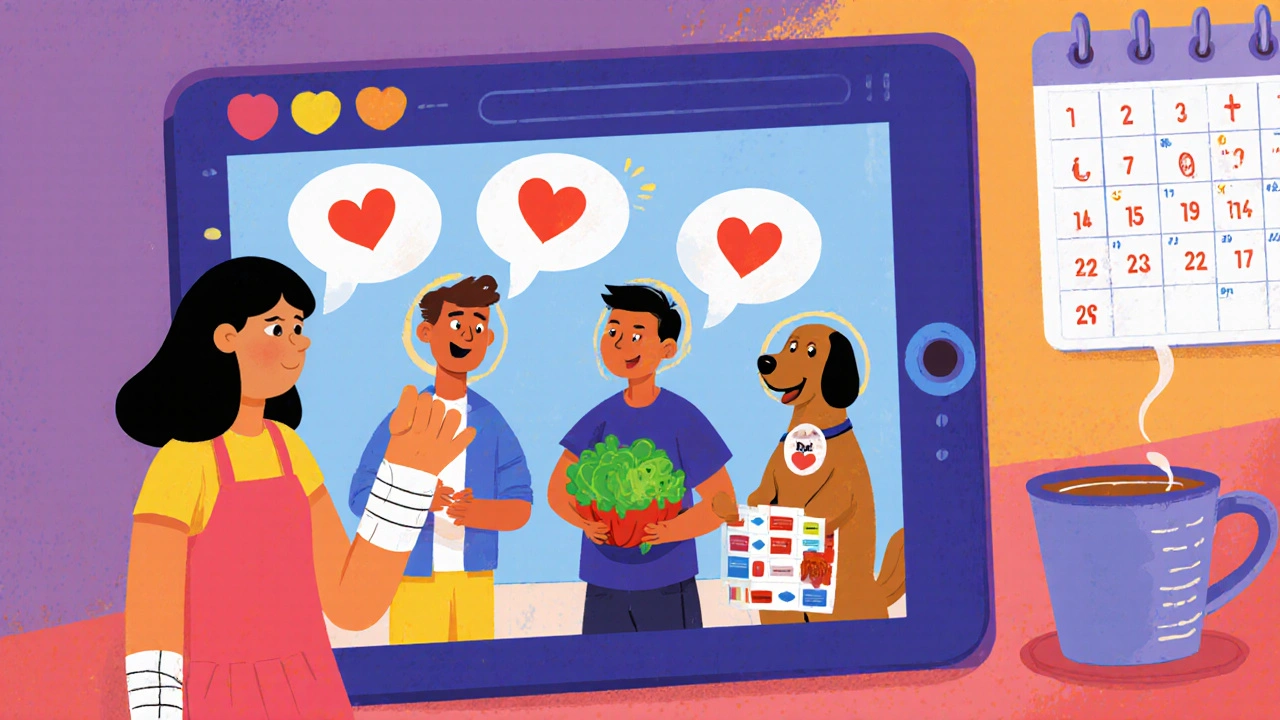
What to Look for (and Avoid) in a Support Group
Not all groups are created equal. Some can be helpful. Others can make you more anxious.
Good signs:
- Moderators who redirect alarmist posts (“My INR was 12 and I almost died!” → “Let’s talk about what your doctor advised.”)
- Members who share their own INR trends, not just emergencies.
- Discussions that include diet, mental health, travel, and lifestyle-not just dosing.
Red flags:
- People claiming they “cured” their clotting disorder with turmeric or apple cider vinegar.
- Groups that encourage skipping INR tests or changing doses without medical approval.
- Members who shame others for having “bad” INR numbers.
A healthy group doesn’t promise miracles. It promises understanding.
How to Start Talking-Even If You’re Scared
Joining a group feels scary at first. What if no one replies? What if they think I’m weird for worrying so much?
Here’s how to begin:
- Read for a week. Just observe. See how people talk. Notice who responds kindly.
- Post something small: “Hi, I’ve been on warfarin for 8 months. My INR keeps bouncing. Any tips for keeping it steady?”
- Reply to one post. Just say, “I felt that way too.”
- Slowly share more. Maybe next time: “I missed my last INR because I was too scared to go. I felt guilty.”
It’s not about being brave. It’s about being honest. And honesty is what connects people.
Support Groups Aren’t a Replacement for Your Doctor
Let’s be clear: support groups don’t replace medical care. They complement it. Your doctor still orders your INR tests. Your pharmacist still checks your meds. Your nurse still explains what a 3.2 means.
But here’s the difference: your doctor sees you for 10 minutes every six weeks. A support group sees you every day.
They remember that your INR was 2.1 last week and ask if you changed your diet. They know you’re stressed because your cat got sick. They remind you it’s okay to take a day off from worrying.
That’s the real power of community.
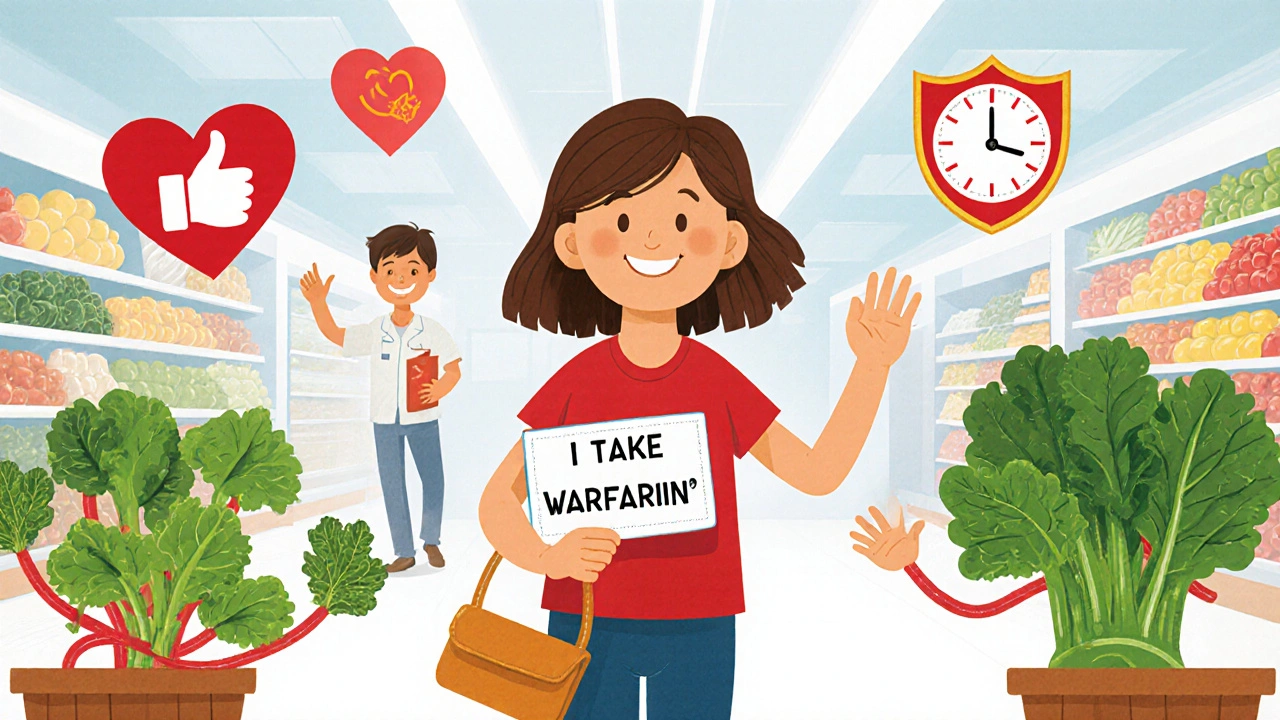
What Warfarin Support Can Do for Your Mental Health
Studies show that people on long-term anticoagulants have higher rates of anxiety and depression than the general population. That’s not surprising. You’re living with a constant, invisible threat.
Support groups reduce that burden. A 2023 study from the University of Sydney followed 200 people on warfarin for a year. Those who joined a peer support group had 40% fewer anxiety spikes and were 3 times more likely to stick to their INR schedule.
It’s not magic. It’s connection.
When you stop feeling like a statistic, you start feeling like a person.
Final Thought: You’re Not a Problem to Be Fixed
Warfarin doesn’t define you. But the fear around it? That can. And that fear thrives in silence.
There’s no shame in needing help. No weakness in asking, “Is this normal?” There’s strength in finding others who’ve walked this path.
Someone out there is scared right now, just like you. They’re waiting for someone to say, “Me too.”
Be that person.
Can I join a warfarin support group if I’m not sure about my dosage?
Yes. Many people join support groups precisely because they’re unsure about their dosage or INR targets. Support groups aren’t for giving medical advice-they’re for sharing experiences. You can ask, “How did you handle when your doctor changed your dose?” and get real stories from people who’ve been there. But always confirm any dosage changes with your doctor or anticoagulation clinic.
Are online support groups safe for sharing personal health info?
Most reputable groups have clear rules about privacy. Avoid sharing your full name, exact INR numbers, or personal details like your address. Use a nickname. Stick to general experiences: “I had trouble with bleeding after a dental procedure,” not “My INR was 4.8 on June 12.” Look for groups moderated by healthcare professionals or patient advocacy organizations-they’re more likely to enforce safety rules.
What if I can’t find a group near me?
You don’t need to be local. Online groups are just as effective-and often more active. The Heart Foundation Australia’s Warfarin Connect forum has members from rural Western Australia, Tasmania, and remote towns. Reddit and Facebook groups are accessible 24/7. You can also ask your anticoagulation clinic if they offer phone check-ins with peer mentors. Many do, even if they don’t advertise it.
Do support groups help with diet and food restrictions?
Yes. Many members share practical tips: “I eat spinach every Tuesday and adjust my warfarin dose with my doctor’s help,” or “I use the MyFitnessPal app to track vitamin K intake.” The key is consistency, not elimination. Support groups help you learn how to live with your diet-not fight it. Always double-check dietary advice with your pharmacist or dietitian, but hearing how others manage it can reduce the stress of feeling restricted.
Can my family join these groups too?
Absolutely. Many groups welcome family members, caregivers, and partners. Warfarin affects more than just the person taking it. Spouses often worry about bleeding risks. Parents want to know if their child can play contact sports. Support groups give families a space to ask questions without feeling like they’re being a burden. Some groups even have separate sessions for caregivers.
Next Steps: What to Do Today
You don’t need to join a group tomorrow. But here’s one thing you can do today:
- Open your phone and search “warfarin support group Australia.”
- Click on one link. Read the first three posts.
- Leave a comment: “Thanks for sharing. I’m new here.”
That’s it. You’ve taken the first step. The rest will follow.

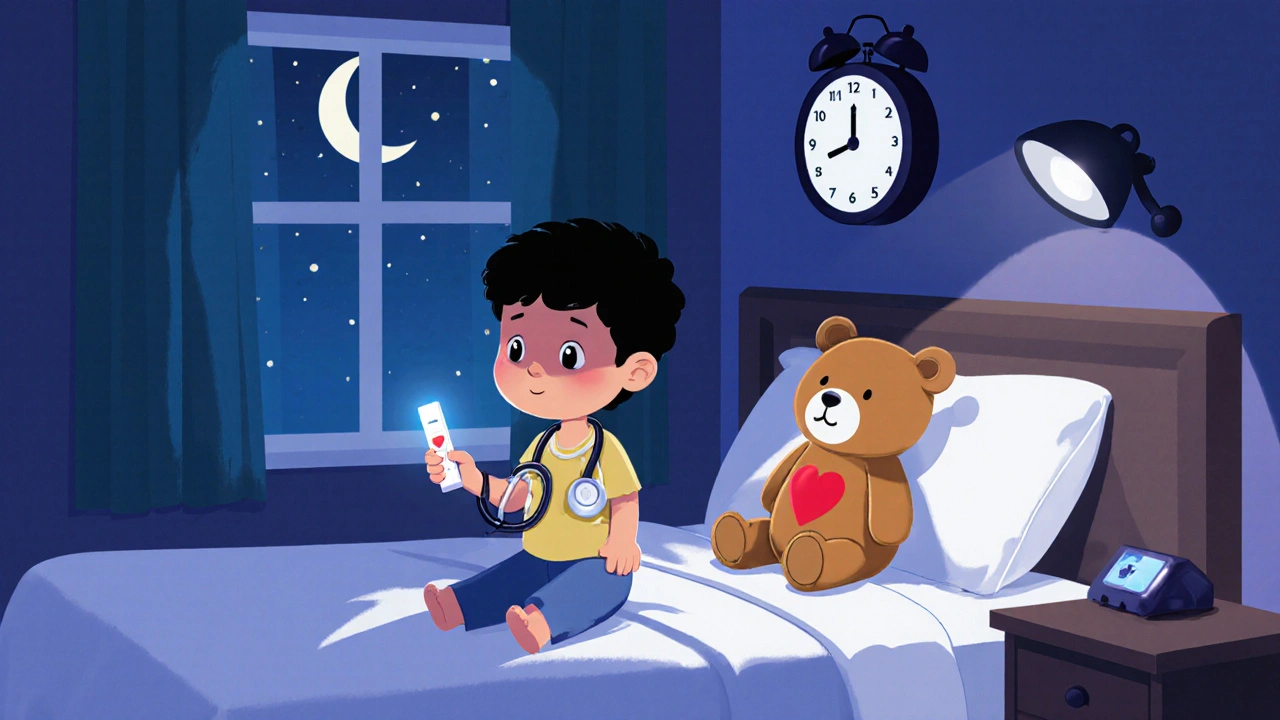
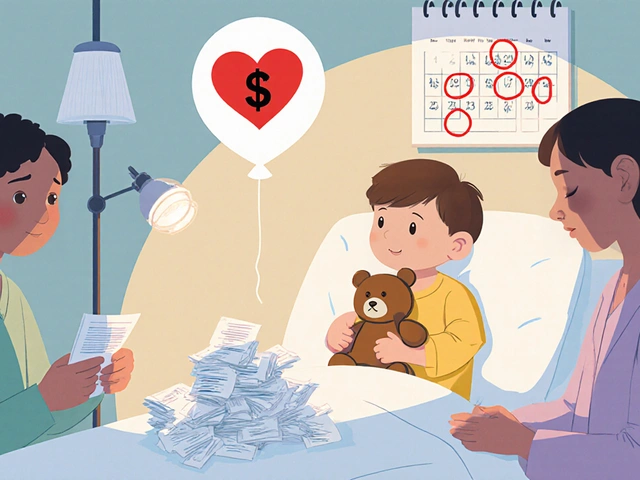
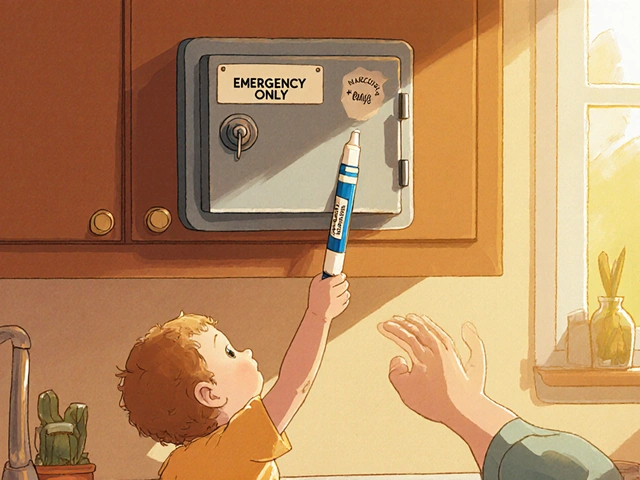
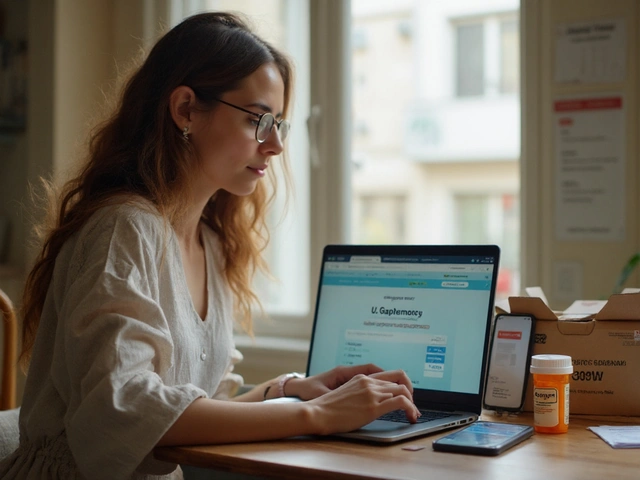
8 Comments
Nick Zararis
Just wanted to say-I’ve been on warfarin for 11 years, and this post? Perfect. The midnight fears, the spinach guilt, the way your brain turns every bruise into a horror movie-I get it. I carry that little card too. And yes, I’ve cried after an INR of 4.1. It’s not weakness. It’s being human. You’re not alone. Ever.
Imogen Levermore
i mean... what if warfarin is just a scam by big pharma to keep us docile? 🤔 i read this one blog that said coumadin was originally rat poison?? and now we’re all drinking it?? 🍷💀 maybe the real solution is... turmeric? or maybe just stop eating greens?? idk i’m just asking questions 😅
Chris Dockter
This whole post is just emotional manipulation wrapped in a bow. You’re not ‘scared’-you’re lazy. Take your pill. Get your INR. Stop whining. People die from clots because others like you can’t follow basic instructions. Support groups? They’re enablers. Get a life.
Gordon Oluoch
The notion that peer support replaces medical oversight is statistically unsound. The 2023 Sydney study cited has a sample size of 200, with no control for confounding variables such as baseline anxiety levels, socioeconomic status, or medication adherence history. The emotional appeal is potent, but it lacks scientific rigor. Your ‘connection’ does not alter pharmacokinetics.
Tyler Wolfe
i just joined r/warfarin last week and honestly? i was scared to post. but i did. just said ‘hi, new here, my inr’s been all over the place’. someone replied with ‘same, here’s my log’ and i cried. not because i’m weak. because someone finally saw me. thanks for this.
Emily Gibson
Chris, I get where you’re coming from-but you’re missing the point. This isn’t about compliance. It’s about the weight of living with a condition that nobody else understands. I’ve been a nurse for 18 years. I’ve seen patients die from clots, yes. But I’ve also seen patients die from loneliness. Support groups don’t replace doctors-they replace silence. And silence kills faster than INRs ever could.
Mirian Ramirez
Imogen, I know you’re trolling, but I’ve got to say-your comment made me laugh and then cry. I actually did start taking turmeric because I thought it might help. My doctor laughed so hard he spilled his coffee. Then he said, ‘Mirian, if you want to live past 50, don’t mix that with warfarin.’ So I stopped. But I still keep a little jar on my counter as a reminder: we’re all trying to figure this out, even if we’re doing it wrong. And that’s okay. I’ve been on warfarin since I was 28. I’m 47 now. I’ve had INRs of 1.1 and 8.9. I’ve missed appointments because I was too scared. I’ve cried in parking lots. But I’m still here. And I’m still taking my pill. And I’m still learning. And I’m still grateful for the people who say ‘me too.’ So yeah. Turmeric? Maybe not. But ‘me too’? Always.
Kika Armata
The entire premise of this post is fundamentally flawed. Warfarin support groups are a symptom of the collapse of clinical accountability. If patients require emotional validation to adhere to a well-documented, evidence-based anticoagulation protocol, then the fault lies not in isolation-but in the systemic failure of medical education to instill discipline. This is not ‘community.’ This is therapeutic infantilization. And the fact that Reddit is cited as a credible resource? Unacceptable.